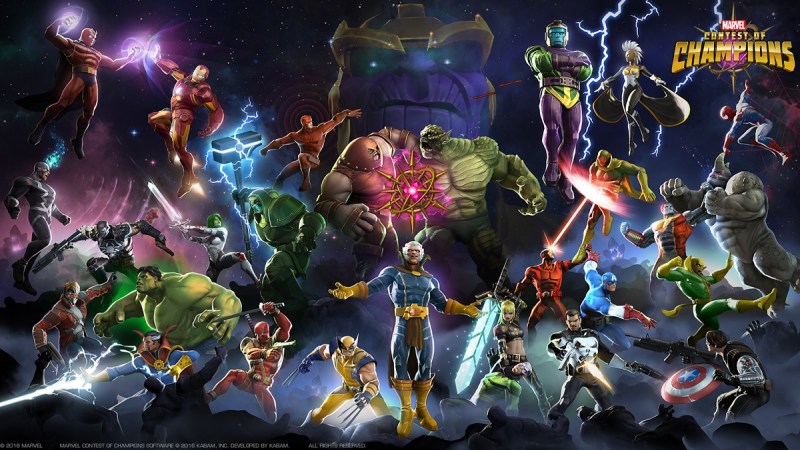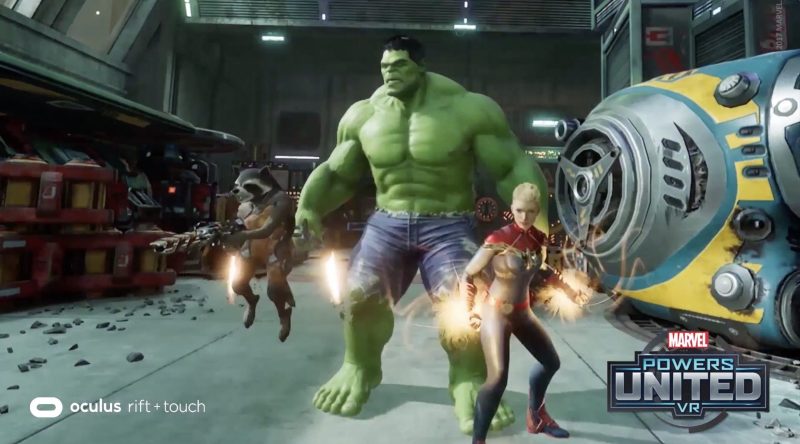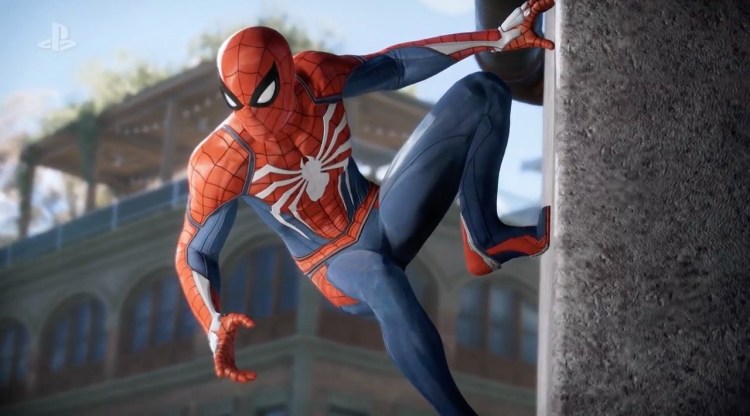NBCUniversal decided to shut down its game publishing division after almost three years. The company will go back to a strategy of licensing games to external game developers and publishers. It could still prosper with games, but it’s a lower risk, lower reward strategy.
And it’s not the first time a major Hollywood studio has done this. Disney shut its mobile game publishing business a few years ago and switched to licensing. It recently acquired FoxNext Games with the acquisition of Fox, and now Disney is selling that game division off as well.
Yet games are the favorite form of entertainment for the millennial generation, which is why games have soared to a $180 billion business. What explains this swing in Hollywood? I addressed some of this in my DeanBeat column on Friday. But I also moderated a panel at GameDaily Connect in Anaheim, California, just a stone’s throw from Disneyland. Our topic covered some of the same ground and almost predicted some of the business decisions that Hollywood executives are making now.
The panelists included Steve Fowler, senior vice president of marketing, FoxNext Games; Guy Costantini, vice president of global interactive marketing at Skydance; Matt McMahon, senior vice president of business development at Seriously; and Barry Dorf, business development for Amazon Game Services at Amazon.
June 5th: The AI Audit in NYC
Join us next week in NYC to engage with top executive leaders, delving into strategies for auditing AI models to ensure fairness, optimal performance, and ethical compliance across diverse organizations. Secure your attendance for this exclusive invite-only event.
We had a lively discussion, though perhaps I was most free to express my opinions about games and Hollywood. So I did, as you can see in the edited transcript of our interview.

Above: Left to right: Steve Fowler of FoxNext Games; Barry Dorf of Amazon, Guy Constantini of Skydance, and Matt McMahon of Seriously.
Steve Fowler: I’m the senior vice president of marketing and publishing for FoxNext Games. It’s a little complicated. Fox used to be a different company. Now we’re under Disney. But we’re the first party group. We have four development studios.
One game is live and pretty successful, called Marvel Strike Force. That was our first game on mobile. We have another game in beta right now in Canada and New Zealand called Storyscape. It’s a choose your own adventure, Telltale Games kind of experience, but with some Fox IP and some original IP. The third game will go into technical beta in two weeks. It’s a strategy game based on the Avatar license from James Cameron. The last game we’re working on, which we’ll see sometime next year, is a hardcore online shooter in the Aliens universe.
Barry Dorf: I’m head of business development for Amazon Game Tech.
Guy Costantini: I work for Skydance. We make movies like Terminator, which you can see in November, and Mission Impossible. We also have a game studio making a bunch of VR games. We’re working on a VR game in the Walking Dead universe called Walking Dead: Saints and Sinners. We’ll have more information on that coming in the future.
A lot of what we do — we’re storytellers. We tell stories across games, TV, and other kinds of entertainment, hopefully to the delight of our players.
Matt McMahon: I’m senior vice president for business development at Seriously. We’re wholly owned at Seriously for the moment. We’re now in the Playtika family. This is a moment for us — the platform relationship is a bit of a hybrid. It’s everything we do to extend our brand, our world, our characters into television and animation and consumer products. I oversee a number of things we’re doing to try to grow the business.
To a bit more of the point of this panel, I was at 20th Century Fox for 11 years prior to Seriously, running the third-party licensing business at Fox. Fox at the time was not a first party. We were out there licensing and trying to place our IP with great developers to make interesting experiences for people to enjoy as extensions of our films and TV shows.

Above: Sanctuaries are coming to Jurassic World Alive
GamesBeat: I feel like we might be in Hollywood and games 4.0, something like that. To level-set everyone, what do you think of the 1.0 or 2.0 era? We have decades of experience on this panel. How would you describe what it used to be like?
Fowler: My first experience with licensed games was with Interplay, 22 or 23 years ago. I was a brand manager on the Star Trek games for them. I’d say at that point, it was kind of hands-off. The studios didn’t really — I’m not sure they even knew we were working on their license. That gave us a lot of freedom to experiment. We did some really cool strategy games back then. Maybe that was 1.0 that I remember. We had a Lord of the Rings game, a bunch of licensed games.
Later on, if you want to call it 2.0, Hollywood did start paying attention to us. I felt that it shifted to the point where Hollywood looked at what we did as a way to sell more of what they were pushing. If they had a movie in theaters, they needed to license out the rights to a game that came out day and date with the film. They looked at it as an extension to sell more tickets. That ended up driving down quality. Game development studios were forced to adhere to specific deadlines or put features and character in their games that weren’t necessarily great for gameplay. That was the down years of Hollywood and games.
Fast forward to now, at least from my perspective at FoxNext, with the Marvel licenses and the Lightstorm partnerships we have, it’s completely different. We make great games first, and then we leverage the popularity and awareness of beloved franchises. The partners understand that. Marvel, who we’re deeply engaged with — we have the deepest relationship with them so far, a year and a half in on Strike Force — is a great partner.
They’re probably one of the most serious groups for our category, with a fully dedicated team of people that come from the games world. Jay Ong used to be at Blizzard. They completely get it. The partnership we have with them is such that — they succeed if we succeed. It’s truly changed from what it was to where it is now. Most of the successful licensors and game studios understand that it’s not a support business. Games is a frontline business.
Dorf: When I was at EA we got the Harry Potter license. 1.0 for me was, you weren’t just making a game. You were trying to create franchises that would last for 10-15 years to go along with each new movie and book. It was a much bigger deal, much bigger partnerships. You were kind of getting in bed forever when you signed on with something back in the days of the consoles.
When I was at DeNA, you’d talk to Marvel or Star Wars, these license-holders, it was all about — you have a game with a mechanic that works, and then we’ll add the IP to it and it can be an accelerator. If the functionality wasn’t there, the gameplay wasn’t there, the KPIs weren’t there, they didn’t want to talk to you, no matter how big you were. There was no time for risks.
There’s so much noise now in all the stores with all the games. That wasn’t true with 1.0 or 2.0. If you had the Harry Potter license you owned the Harry Potter license and that was it. Even when we did Lord of the Rings at EA, there was no other game that was going to come out within months. Now they’re putting windows in the app stores — you have a four-week window where you’re going to be the only new Marvel game coming out. That’s it. When four weeks is up, there’s another game. You can’t miss your date, because that’s all the time you have, unless you’re working on a smaller license, more of a niche game, where you have more of a window.
Costantini: I can’t comment on 1.0. I think I was enjoying the fruits of your labor at the time. [laughs]
Fowler: You trying to say I’m old?

Above: Marvel Contest of Champions
Costantini: I think I’m just thanking you? But I’ve had experience working on mobile games at Kabam. We had Marvel Contest of Champions. We did a Star Wars game and a Lord of the Rings game. They all had different degrees of success, commercial and critical. That was the last generation. The mobile game space took a while to understand — at first, they ran into a gold mine. They thought they could just print money. They didn’t realize that they were strip-mining.
Now we’re finally getting to a point where you have mobile games that are really full-on fun games. You’re competing with the traditional games, because when it’s in your pocket, different things make you happy while you’re playing it. You have execution like Contest of Champions and the stuff that Supercell is doing that’s just better. I don’t need to have the Witcher on my phone. I don’t have time to play Witcher on my phone. But when I have time to play on my phone, I want to play something specific, something good, something that doesn’t just reach into my pocket and try to empty my bank account.
The companies that understand that will reap the success of building long-term relationships with their players. Some companies, especially those on this stage, are getting that. We’re starting to see that evolution. We’re seeing multiplatform games that play great on all platforms. There are no hard and fast rules about what works and what won’t. From our perspective, what we’re going after is telling great stories and making great games. That’s consistently been the common denominator of what causes long-term success. If you can do that and be aware of where people consume their experience, you’re looking at success across the board.
Do you have a small window, a long window? If you have a little bit of an experience, you can grab people back with a strong live ops plan. There are lots of ways to succeed. But like you mentioned, there’s a lot of noise. You need a solid strategy. What are you going to do to come through.

Above: Marvel Powers United VR for Oculus Rift.
McMahon: I came in at the 2.0 phase. I think there was a window where you could experiment with a lot of crazy games. I remember the Predator game we made with a tiny studio in Romania. It was a great little game in itself, but it didn’t address a lot of the issues that you brought up.
One of the things we were struggling with — and games have almost dragged the studios along and forced them to deal with it — is this idea of putting forth — that games are your best live service franchise element. You take a game on a daily basis. Mobile games in particular do that. There’s a compulsion loop. There’s a return loop. It’s all built in so you’re coming back very regularly. You’re not coming back in three years when Ice Age 15 comes out.
You have this ability to do live ops in an intelligent way, to communicate with your community in an intelligent way, to be directly connected with your audience in an intelligent way. At least when I was still at Fox, which was five or six years ago now, this was a cognitive bridge that we were trying to cross. All the game companies were trying to get the studios to cross that bridge. Time and time again we ran into this idea of, “Don’t sweat it. You guys are in the licensing business. It’s a great contribution to the overall company, but it’s in the TV window. It’s in the special edition DVD window. Don’t try and do too much.”
I think that’s come around now where not only are the big studios in Hollywood realizing how lucrative these games can be, but they really can be your first touch point on a daily basis. People are in the games playing 45 minutes a day, an hour a day, on their most personal, intimate devices. If that’s happening all the time, that’s a great franchise management tool and channel.
It feels like games have had to pull Hollywood toward that. They were in a legacy business model that was not focused on direct to consumer. Obviously that’s changed in a big way. They weren’t focused on live ops. That’s changed. They weren’t focused on the way digital can be a franchise management tool.

